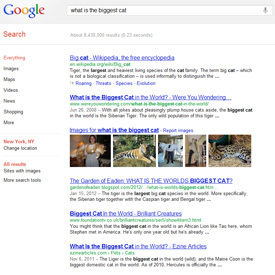
[ad_1]
You may not be able to hide from your past, but now you can delete it from the Internet – in the EU, at least.
A recent ruling from the Court of Justice of the European Union called on Google to provide a way for people to request that their information be removed from the search engine. As a result, Google this week published a search removal request form(Opens in a new window).
The online application allows residents of the EU’s 28 member states to petition for certain links to be removed from the search engine’s results.
The case dates back to 1998, when a large Spanish daily newspaper published an article about Mario Costeja Gonzalez’s social security debts. When the paper’s archives were later published online, the man discovered that a search for his name produced the article.
Despite his attempts, both the newspaper publisher and Google refused to remove the story or the direct link, so he filed a complaint with the Spanish data protection authorities, which led to a 2010 order for Google to remove mention of his name from search results.
The Web giant appealed, and in June 2013 won a case in the EU’s Central Court of Justice, which found that search engines were not required to remove such links, provided that publication of the data is legal.
That decision was overturned, however, earlier this month, in what Google called “a disappointing ruling for search engines and online publishers in general.”
Still an “initial effort,” the online application requires details including your home country, full name, email address, and list of URLs to be removed. Users will also need a valid form of photo ID, in an effort for Google to crack down on fraudulent removal requests.
“We will assess each individual request and attempt to balance the privacy rights of the individual with the public’s right to know and distribute information,” Google explained.
Don’t expect your petition to automatically result in a clean Web slate. Information about financial scams, professional malpractice, criminal convictions, or public conduct of government officials, for example, may not make the cut.
Gonzalez, meanwhile, might be pleased with the outcome, but Google executive chairman Eric Schmidt is not; he said recently that the European court made a mistake.
[ad_2]
Source link : https://www.pcmag.com/news/google-launches-right-to-be-forgotten-request-form